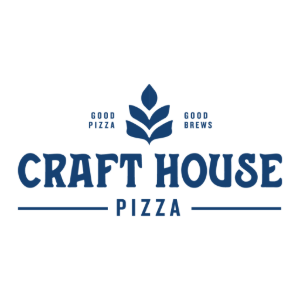Opening a food service location, whether it’s a restaurant, food truck, or catering business, can be a rewarding venture. However, navigating the complex world of permits and regulations is a critical aspect of starting your food service business. To ensure your food service location operates legally and safely, you must obtain the necessary permits and licenses. In this guide, we will walk you through the steps to obtain the required permits and licenses for your food service establishment.
1. Define Your Food Service Concept
Before delving into the permitting process, it’s essential to define your food service concept. This includes determining the type of food you’ll serve, your target market, and your business model. Your concept will influence the specific permits and licenses you need, as well as the location you choose for your establishment.
2. Business Entity and Structure
Select the appropriate business entity and structure for your food service location, such as a sole proprietorship, partnership, limited liability company (LLC), or corporation. Your business structure will affect the permits and licenses you need, as well as your personal liability and taxation.
3. Location and Zoning
Choosing the right location for your food service establishment is crucial. Different areas have varying zoning regulations and restrictions. Verify that your chosen location is properly zoned for your type of food service business. If not, you may need to apply for a zoning variance or conditional use permit.
4. Permits and Licenses
To operate legally, you’ll need a range of permits and licenses, including but not limited to:
- Business License: A general business license is typically required to operate any business. Check with your local city or county government to obtain this license.
- Food Service Permit: This permit, often issued by the health department, is required for handling and preparing food. It ensures that you follow sanitary and safety guidelines. You may need both a food service establishment permit and a food handler’s permit for employees.
- Alcohol License: If you plan to serve alcohol, you’ll need a specific license, which varies by location and the type of alcohol you intend to serve.
- Sign Permit: Many municipalities require permits for outdoor signage and advertisements.
- Building Permit: Renovating or constructing a new building for your food service location may require building permits to ensure compliance with local construction codes.
- Fire Department Permit: If your food service location involves open flames, fire suppression systems, or cooking equipment, you’ll need a fire department permit.
- Outdoor Dining Permit: If you plan to offer outdoor seating, an outdoor dining permit may be required.
- Music and Entertainment License: If you intend to host live music, DJs, or other forms of entertainment, you may need a separate license.
- Special Events Permit: If you plan to cater or participate in special events, you’ll need additional permits for off-site food service.
5. Federal Permits and Regulations
For some food service establishments, federal permits and regulations may apply. The most common federal permit is the Food Establishment Permit, issued by the U.S. Food and Drug Administration (FDA). If your business engages in interstate commerce or handles specific products (e.g., seafood or meat), you may also need additional federal permits.
6. State Regulations
State-level regulations play a significant role in food service permitting. The specific requirements can vary widely from state to state. Some common state-level permits and licenses include:
- State business license
- State health department food service permit
- Sales tax permit
- Liquor license (if applicable)
- State-specific permits for catering or mobile food service
7. Local Regulations
Local regulations are often the most detailed and directly impact your food service location. These may include:
- County or city business license
- County or city health department permits
- Noise and nuisance permits
- Mobile food vending permits (if operating a food truck)
- Sidewalk café permits (if offering outdoor dining)
- Off-site catering permits
8. Health and Safety Compliance
Compliance with health and safety regulations is a top priority for any food service location. To ensure compliance, you must:
- Maintain sanitary conditions: Regularly inspect and clean all food preparation and storage areas.
- Train employees in food safety: Provide food safety training and ensure employees are knowledgeable about proper food handling.
- Implement safe food handling procedures: Follow established procedures for receiving, storing, preparing, and serving food.
- Perform routine health department inspections: Most food service locations undergo periodic inspections to verify compliance with health and safety regulations.
9. Employee Health and Safety
Employee health and safety should also be a primary concern. Adhere to the following guidelines:
- Provide a safe work environment: Maintain equipment, repair any hazards, and enforce safety protocols.
- Offer safety training: Ensure employees are educated on safety procedures, emergency response plans, and equipment use.
- Handle workers’ compensation: Obtain workers’ compensation insurance as required by your state.
10. Environmental Considerations
Sustainable and environmentally responsible practices are increasingly important in the food service industry. Consider the following:
- Waste management: Implement a recycling and waste reduction program to minimize environmental impact.
- Energy efficiency: Use energy-efficient appliances and lighting to reduce your establishment’s energy consumption.
- Sustainable sourcing: Whenever possible, source ingredients and products from local, sustainable, and eco-friendly suppliers.
11. Compliance with Accessibility Laws
To serve all customers, including those with disabilities, ensure your food service location complies with the Americans with Disabilities Act (ADA). This may include accessible entrances, restrooms, and seating areas.
12. Insurance
Obtain appropriate insurance coverage for your food service business. Common types of insurance include:
- General liability insurance: Protects against property damage or injuries to customers.
- Workers’ compensation insurance: Provides coverage for workplace injuries or illnesses.
- Foodborne illness insurance: Covers expenses related to foodborne illness outbreaks.
- Liquor liability insurance: Necessary if you serve alcohol, this insurance covers incidents involving intoxicated patrons.
13. Taxes
Comply with all federal, state, and local tax regulations, including sales tax, income tax, and payroll tax. Consult with a tax professional to ensure proper tax registration and payment.
14. Food Handling and Safety Training
Invest in food safety training for yourself and your employees. Depending on your location, you may be required to complete a food handler’s course or certification. This training is essential for safe food preparation and handling.
15. Record Keeping
Maintain detailed records of your food service business operations, including:
- Financial records
- Employee records
- Health department inspection reports
- Permits and licenses
- Tax records
Accurate record-keeping is vital for compliance, transparency, and financial management.
16. Marketing and Branding
Promote your food service location effectively to attract customers. Use a combination of online and offline marketing strategies, such as creating a professional website, using social media, and building a strong brand identity.
Obtaining the necessary permits and licenses for your food service location is a complex but essential process. The specific requirements will depend on the type of food service business you’re starting, your location, and the regulatory environment. It’s crucial to research, plan, and consult with local authorities to ensure that you meet all legal and safety requirements. By addressing the various elements discussed in this guide, you can set your food service location on a path to success while complying with all necessary regulations and regulations.
For more information on how to obtain a permit to open your food service franchise location, contact Franchise Marketing Systems (FMS Franchise): www.FMSFranchise.com














